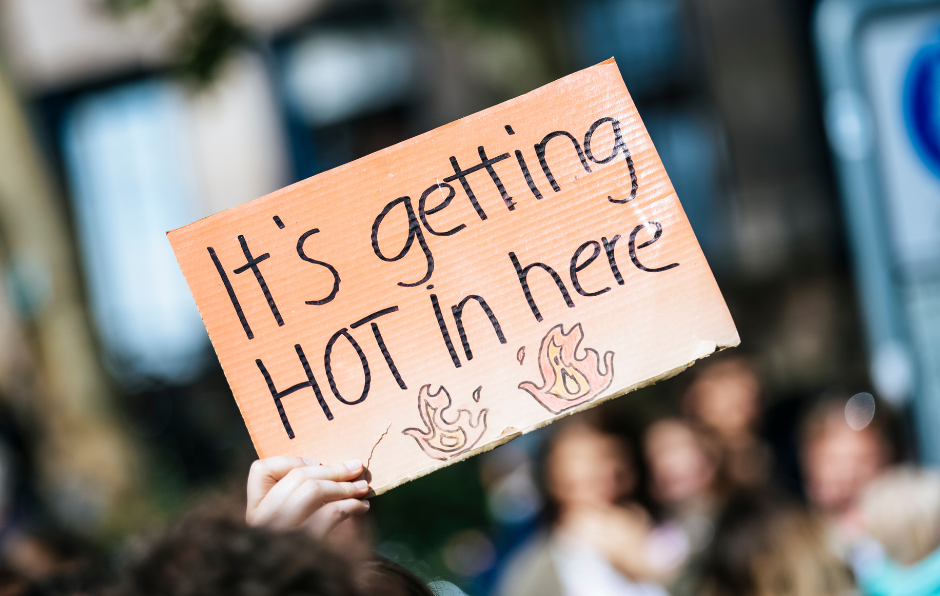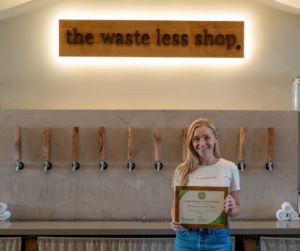- About
- Go Green
- Get Started
- Directory
- Resources
- Impact Reports
- Annual Buyer’s Guide
- Sector Specific Trainings and Educational Webinars
- Webinar Series: Safer Alternatives to Toxic Solvents & Toxic Ingredients
- Northern Nevada Sustainable Brewery Summit
- Auto Repair & Auto Body P2 Workshop & Tradeshow
- Green Lodging Workshop Videos
- Metal Manufacturers and Finishers Training
- Safer Alternatives for Toxic Chemicals and High VOC Content Industrial Formulations
- 2020 NVGBN Webinar Series
- GreenACTnv Webinar Series
- Greening Nevada Video Series
- More Resources
- News
- Events
- Contact

- About
- Go Green
- Get Started
- Directory
- Resources
- Impact Reports
- Annual Buyer’s Guide
- Sector Specific Trainings and Educational Webinars
- Webinar Series: Safer Alternatives to Toxic Solvents & Toxic Ingredients
- Northern Nevada Sustainable Brewery Summit
- Auto Repair & Auto Body P2 Workshop & Tradeshow
- Green Lodging Workshop Videos
- Metal Manufacturers and Finishers Training
- Safer Alternatives for Toxic Chemicals and High VOC Content Industrial Formulations
- 2020 NVGBN Webinar Series
- GreenACTnv Webinar Series
- Greening Nevada Video Series
- More Resources
- News
- Events
- Contact
Eco-Anxiety: The Green Mental Health Crisis
By Leila Nagasaka, Western Nevada College

It’s Mental Health Awareness Month, and NVGBN is proud to join the movement, doing our part to raise awareness of and destigmatize mental health issues. Enjoy our blog on eco-anxiety and the methods of combatting it, written by our intern Leila Nagasaka and edited by Erica Gallegos, our Green Business Program Coordinator.
It’s safe to assume that most people have experienced anxiety in some way, shape, or form. It’s easy to identify the apprehension and nervousness that precedes a public speaking event or a job interview – especially when that anxiousness manifests in a physical way such as sweaty palms or speech impairment.
However, anxiety and its triggers vary from person to person. Some people only experience this reaction occasionally, while others struggle daily to cope with matters and experiences beyond their control. And if someone is unable to find solutions to alleviate this kind of distress, anxiety can significantly diminish their quality of life.
Now, lets talk about climate change.
The health and wellness of our planet is a growing concern from the global population as we become increasingly aware of environmental degradation, unsustainable policies, and climate change impacts. For example, water and food scarcity, flooding, tropical atoms, and wildfires can destroy communities and deeply traumatize the people in these vulnerable regions, keeping anthropogenic climate change at the forefront of their minds. Even people who may not be directly affected by climate change may nervously catalog the impending health impacts, trophic cascades, and rising global temperatures around the world.
While we appear to be slowly progressing toward a greener future with cleaner energy, carbon reduction efforts, and sustainable initiatives, it still doesn’t seem to be enough, soon enough. Despite our best efforts, we still face the reality of warming, rising oceans; more frequent and intense weather events; and unstable, drastic shifts in our environments. And while a collective emotional response to a crisis can spur change and environmental activism, it can also be equally debilitating in the face of a climate crisis.
Eco-anxiety—also known as climate-anxiety—is a form of emotional and mental distress specifically related to and caused by the threat of climate change. Some people may have heard of eco-anxiety but never experienced it themselves. Others may have felt an emotional response to environmental issues but didn’t realize this chronic fear had a name. Wherever you stand with your understanding of eco-anxiety, it is important to know that it exists, and it is something environmentally-conscious individuals may experience.
Who may be at risk of experiencing eco-anxiety?
As previously stated, eco-anxiety is a negative emotional response to environmental or climate change-related issues. Anyone who has a vested interest in the preservation of our planet can experience eco-anxiety and climate-related distress. However, this condition affects younger generations to a much higher degree. In 2021, a survey asked 10,000 children and young adults (aged 16-25) from 10 different countries about the emotional implications climate change has on their lives. Nearly 60% of the total participants experienced feelings of extreme worry in regards to climate change, and 45% felt that their ecological distress had a noticeable negative effect on daily life functions such as eating, sleeping, and work. Life experience and geographic location can also affect a predisposition toward eco-anxiety. The same research study found that these extreme feelings of worry surrounding climate change were higher in participants from “poorer” nations who may experience more severe, immediate, and frequent ecological consequences.
Where does all this negativity come from?
Younger populations are typically more susceptible to climate anxiety because most of the ecological and financial burdens of climate change will fall on their plate. However, they are also the generation with the highest exposure to social media. Media exposure can have a significant effect on how we absorb our reality. The term “doom-scrolling” is a great example of how online exposure has real-world outcomes. Despite the stress it inflicts, we may feel more inclined to doom-scroll through our social media feeds because we feel that, if nothing else, we can at least stay informed. And while traditional news outlets swap from one story to the next, social media provides constant stimulation fed by an algorithm designed to keep us engaged. When it’s not a dopamine chase, it’s a rabbit hole of fear-mongering content.

Eco-anxiety isn’t confined to specific parameters; it spans an entire spectrum of ecological distress, and this spectrum indicates the frequency at which these emotions are felt and expressed. On one end of this spectrum, people who experience mild eco-anxiety may worry about climate change occasionally, but may also feel that their ecological efforts are enough to help. As the frequency and degree of distress increases, so too may the actions of individuals who feel they need to compensate for climate change. On the severe end of the spectrum, people also experience heightened emotional responses to climate change. For example, we may feel afraid of an uncertain future, angry that action appears to be stagnant, powerless to do anything meaningful, and guilty for our contributions. We may even grieve what we have lost or what we have the potential to lose.
So, with all of these negative emotions and impending disasters, how can we possibly cope?
Unfortunately, there is no “cure” for eco-anxiety, just as anxiety disorders do not have a straightforward remedy. But it’s important to remember that the source of eco-anxiety – climate change – is a complex and monumental dilemma with no easy or immediate solution. With a condition like eco-anxiety, your wellbeing is precariously reliant on complicated factors outside of your control.
Therefore, the first step in managing eco-anxiety, no matter the severity, is to approach our emotions with grace and mindfulness. Realize no single person is responsible for solving the climate crisis, nor culpable for the state of the planet. Climate change impacts cannot be undone by individual action alone. This is not to say that our actions are meaningless, however; we must simply prioritize our wellbeing if we hope to address the wellbeing of our environment.
Next, let’s discuss action.
By dealing with our internal responses, we may control our external responses more purposefully. Some people deal with their anxiety through dismissal and avoidance–avoid the problem and avoid the uncomfortable feelings. But the reality is that, no matter how big or small, being present in your decisions does have an impact. For instance, you can limit the amount of harmful media you consume while actively participating in climate action on a regional level, such as donating to environmental organizations, joining your local Citizens’ Climate Lobby, or volunteering for restoration projects. By staying informed on climate-related issues and applying that knowledge to daily choices and interactions, you are already contributing to positive change in your community. And whether you participate in community clean-up events or simply bring your reusable grocery bags to the store, these small, green actions can help provide some mental relief from eco-anxiety.
Here in the Silver State, the Nevada Green Business Network (NVGBN) effectively demonstrates how small actions can have big impacts. NVGBN helps small-to-medium businesses adopt sustainable policies and best practices for free. Through NVGBN’s statewide program, businesses can earn a Nevada Green Business certification and a listing on GreenBizTracker, a national directory of green companies, nonprofits, and schools. Nevada Green Businesses have implemented simple energy efficiency upgrades, water conservation measures, waste reduction and diversion strategies, pollution prevention practices, and policies that encourage behavioral change. At the business level, these small changes can lead to significant reductions in utility bills and resource savings, but collectively, NVGBN’s members have accomplished incredible environmental outcomes. In fact, since NVGBN launched in 2020, 57 certified green businesses have saved over 750,000 pounds of carbon emissions!

As a consumer, one way you can make a difference is by patronizing these certified, eco-minded businesses (and avoiding companies who greenwash). For instance, establishments like The Waste Less Shop promote sustainable buying practices with their environmentally-friendly products and their “bulkbar” refill options. And Green Dining Nevada Restaurants like Buenos Grill and So Juicy are great places to take family or friends when you feel like eating out!
While supporting green businesses may not be considered “aggressive” climate action, your choice to contribute to a green economy allows businesses to prioritize environmental issues and community health. Shopping Green is an easy way for you to reduce your own environmental footprint as well, and knowing you can participate in capitalism sustainably may also combat your eco-anxiety.
Find a Green Business near you at nv.greenbiztracker.org!
To learn more about the collective impact of Nevada Green Businesses, take a look at our Annual Impact reports:
- 2022 Impact Report
- 2023: (Coming Soon)
If you need other mental health resources, visit this website or call/text the national suicide & crisis hotline at 988:
Attributions

Written by Leila Nagasaka, NVGBN Intern
Edited by Erica Gallegos, Green Business Program Coordinator
Western Nevada College
ABOUT US
Nevada Green Business Network (NVGBN) is a coalition of organizations that came together to offer a statewide green business certification program.
